-
 +14 +1
+14 +1Why the next brilliant artist may turn out to be a machine.
They are impressive, perhaps even inspiring, but can artworks created by computers be considered as art?
-
 +13 +1
+13 +1The Last Ones – best drama screenplay at the Los Angeles Film Awards
Another client of THGM Writing Services strikes gold. C.D. Peterson's WWII-era screenplay The Last Ones wins "Best Drama Screenplay" at the Los Angeles Film Awards (LAFA).It's always exciting wh
-
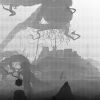 +3 +1
+3 +1Using complexity to discover true novelty
Is it possible to distance one-self from endless levels of bias in order to create something entirely new? In other words: can we come up with an idea (concept, story, philosophy, art or anything, really) that is not directly derived from a similar already existing structure?
-
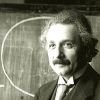 +3 +1
+3 +1Why Do So Many Physicists Write Crime Novels?
You say you want to be a crime writer? Ever thought of studying physics? I’m serious. While many automatically think of an English degree as the gateway to literary success, it’s also true that science-savvy novelists have excelled in every genre. Think of Primo Levi and E.L. Koingsburg, both chemists, Vladimir Nabokov, who was an entomologist and lepidopterist, mathematician Lewis Carroll, and contemporary authors Lisa Genova, a neuroscientist, or physicist Alan Lightman.
-
 +31 +1
+31 +1Majority of authors 'hear' their characters speak, finds study
Some writers have always claimed they can hear their characters speaking, with Enid Blyton suggesting she could “watch and hear everything” and Alice Walker describing how her characters would “come for a visit ... and talk”. But a new study has shown this uncanny experience is very widespread, with almost two-thirds of authors reporting that they hear their characters’ voices while they work.
-
 +2 +1
+2 +1The most important part of the learning process
When it comes to learning anything new, we almost every time go through the same process of learning. Even though there are a few different directions for our learning process, the final step is always crucial. In short, we start from a reason which can be connected to an expectation or a vision. Then comes the effort required for learning and it involves the speed of learning and the ability to keep learning however painful it may be.
-
 +3 +1
+3 +1Study finds cocaine enhances creativity, but not as much as drug users believe
New evidence suggests that cocaine enhances creativity, but only in certain instances.
-
 +9 +1
+9 +1What Shakespeare Actually Did During the Plague
Day 14: The muse strikes! If Cordelia and the Fool never appear in the same scene, that new apprentice can play both of them. Save one actor’s wages, times six performances—can you say “new doublet and hose”?
-
 +4 +1
+4 +1How to Tell a Great Story
Storytelling is everywhere. Whether you write a book, record a podcast, make a presentation, or create a Medium post, the ability to tell a story, and to grab a person’s attention is critical. Yet, so many people don’t know how to write and tell a story in an engaging manner.
-
 +13 +1
+13 +1The Working Solution to the ‘Starving Artist’ Problem
You don’t have to change your art to make money.
-
 +7 +1
+7 +1How To Venture Beyond Your Comfort Zone
The Obstacle Is the Way
-
 +12 +1
+12 +1How To Break Through Barriers To Creativity
Although it feels lonely to struggle with creative inspiration, you're not alone. Check out ideas from three inspirational role models.
-
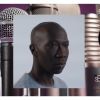 +8 +1
+8 +1On Learning, Listening, and Always Moving Forward
Podcaster, writer, and musician boice-Terrel Allen on how starting a podcast changed his life, not letting fear get in your way, and what can be learned by listening to other people’s stories.
-
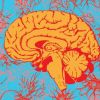 +21 +1
+21 +1New study confirms some of the neurophysiological predictors of creativity
Two brain networks appear to play a key role in creativity, according to new research published in the journal NeuroImage. The findings confirm past research that suggested increased cooperation between brain regions linked to both cognitive control and spontaneous processes is associated with heightened creative ability.
-
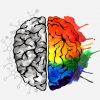 +8 +1
+8 +1On the Differences Between Creativity and Productivity
Writer and critic Yanyi on the realities of leaving your day job, the complicated relationship between being creative and being truly productive, and the value of sometimes changing your mind.
-
 +28 +1
+28 +1Our creative ideas are viewed as a window into our true selves, according to new psychology research
Creative ideas are perceived to be revealing of the self, according to research published in Personality and Social Psychology Bulletin. The findings provide new insights into the psychological and interpersonal consequences of creativity.
-
 +12 +1
+12 +1Can You Trigger Creativity?
Sometimes, taking a problem on head-on isn’t the most creative solution. Why not try Oblique Strategies, the I Ching, or a coin flip? Changing your mental approach might lead to a side-door solution you didn’t see before.
-
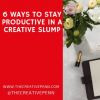 +9 +1
+9 +16 Ways To Stay Productive In A Creative Slump
Every creative person encounters times where we're not feeling creative at all. In this post, Macy Thornhill shares ways to support yourself to get past the natural blocks and slumps that come with the creative life.
-
 +31 +1
+31 +1Flash Is Responsible for the Internet's Most Creative Era
A new book highlighting the visual evolution of web design paints a picture of a risk-taking creative culture that hasn’t been quite the same since Steve Jobs stuck a knife into Flash.
-
 +16 +1
+16 +1Becoming Who You Are: Why Don’t Most People Reach Their Potential?
There are two states of being: surviving and thriving. To survive is to limit downside, to eliminate the risk of ruin — it means fulfilling our basic need for food and shelter and companionship. Thriving is different: It’s an attempt to transcend a state of existence not out of fear but out of desire and yearning.
Submit a link
Start a discussion




















